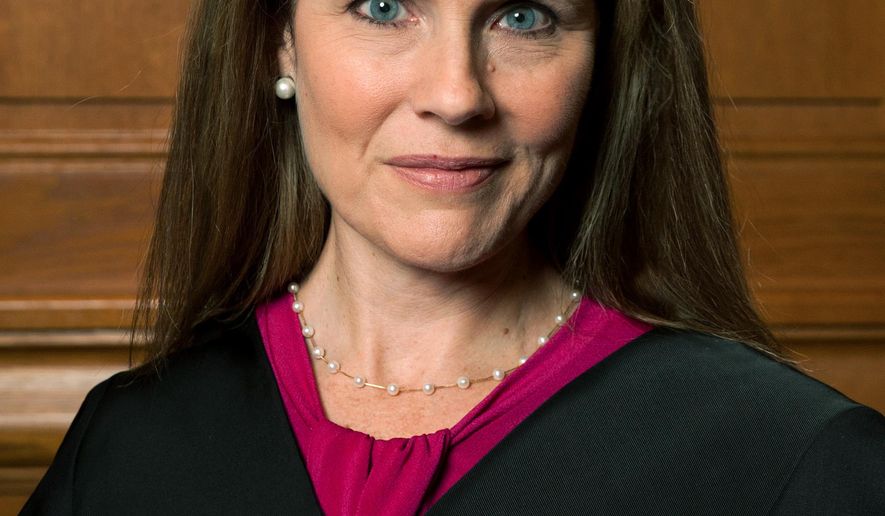 |
| Image: Olivier Douliery/AFP via Getty Images |
The Judge can solidify an originalist majority on the High Court.
President Trump’s nomination of Amy Coney Barrett for the Supreme Court is a highlight of his Presidency and perhaps a hinge moment for the judiciary. Judge Barrett’s record and intellect suggest she can join Mr. Trump’s other appointees in reviving core constitutional principles in American law and life.
If this sounds like a tall order for one Justice, we do not mean to suggest this is her job alone. She is the latest example of a new generation of originalist judges whom Mr. Trump and the GOP Senate have elevated to the federal bench. The numbers—three Justices and 53 appellate-court judges—are crucial, but more important is how they approach the law. With rare exceptions, they think of themselves as protectors of the proper constitutional order, not as a third policy-making alternative to the political branches.
***
Though she has only served three years on the federal bench, Judge Barrett certainly seems an exemplar of this model. At the White House on Saturday, Judge Barrett said her legal principles are those of the late Justice Antonin Scalia, for whom she clerked. This could be dismissed as a rote genuflection to the revered Scalia, but her opinions and scholarship suggest she means it.
As David Rivkin and Andrew Grossman write nearby, her reasoning shows careful attention to statute and the Constitution. Her dissent in Kanter v. Barr (2019) on broad restrictions on gun rights for convicted criminals is especially impressive.
The easy decision would have been to go along with the panel majority, and popular opinion, by barring gun ownership to felons. Judge Barrett looked at the constitutional history and the Supreme Court’s Heller precedent to make important distinctions that protect the Second Amendment the way liberal jurists once protected the First Amendment regarding unpopular political speech. Perhaps on the High Court she can coax Chief Justice John Roberts to stop treating the Second Amendment as the prodigal son of the Bill of Rights. --->READ MORE HERE
 |
| Rachel Malehorn, rachelmalehorn.smugmug.com, via AP |
Although Amy Coney Barrett is the president’s choice to replace Justice Ruth Bader Ginsburg, she is more aptly described as heir to another departed Supreme Court justice: conservative hero Antonin Scalia.
Like Scalia, for whom she once clerked, she is a committed Roman Catholic and a devotee of his favored interpretation of the Constitution known as originalism. Those qualifications delight many on the right but dismay liberals who fear her votes could result in the chipping away of some laws, especially the Roe v. Wade decision legalizing abortion.
President Donald Trump nominated the 48-year-old federal court appellate judge from South Bend, Indiana, at a Rose Garden press conference Saturday.
In remarks moments after Trump named her, with her husband and their seven children looking on, Barrett paid homage to Ginsburg.
“I will be mindful of who came before me,” she said, citing Ginsburg’s career as a trailblazer for women’s rights. “She not only broke glass ceilings; she smashed them.”
But Barrett also highlighted how she is, in her approach to the law, a polar opposite to Ginsburg.
She said of Scalia: “His judicial philosophy is mine, too.” --->READ MORE HEREFollow links below to related stories:
Six conservative justices? 10 ways the Supreme Court could change
On guns, abortion, high court could become more conservative
Trump boasts at Pennsylvania rally that Supreme Court nominee Amy Coney Barrett will defend 'God-given rights'
If you like what you see, please "Like" us on Facebook either here or here. Please follow us on Twitter here.

No comments:
Post a Comment